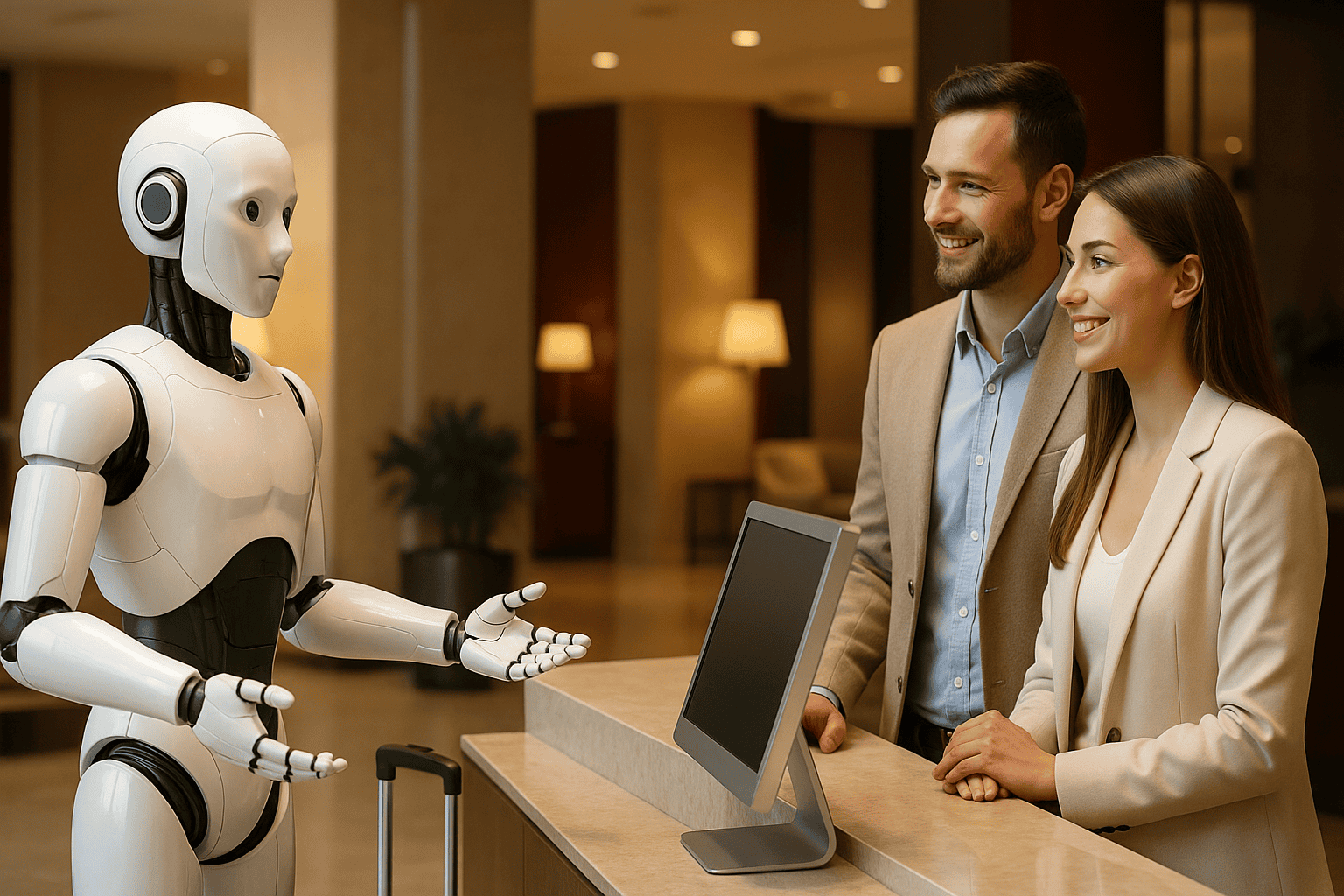As summer travel peaks across Europe, the hospitality industry is embracing an unexpected ally: artificial intelligence. From charming boutique hotels on the Adriatic coast to sprawling campsites in alpine valleys, AI is rapidly becoming the new engine behind better guest experiences, and smarter business decisions.
AI in Tourism: Not Just a Trend, But a Transformation
Across Europe, hotels and resorts are turning to AI-powered solutions to automate services, cut operational costs, and enhance guest satisfaction. What started with basic self-check-in kiosks has evolved into intelligent systems that handle everything from front-desk inquiries to personalized guest recommendations.
Some of the most advanced properties are already using AI digital assistants – chatbots and voice-enabled agents that can answer questions about hotel services, local attractions, or even adjust a guest’s room settings. These assistants help free up human staff for more complex or personalized tasks, crucial in a sector where skilled labor is becoming increasingly hard to find.
Automation That Feels Human
One of the standout innovations includes AI concierge robots. These mobile assistants interact with guests in real time, answering questions, guiding them through the property, or handling minor service requests. Others are equipped with document-scanning capabilities, reducing check-in time from several minutes to a few seconds – an upgrade both guests and hotel staff appreciate.
Behind the scenes, AI is also helping hotels make smarter business decisions. Dynamic pricing algorithms now adjust room rates based on real-time demand and guest profiles, maximizing revenue with impressive precision. Meanwhile, sentiment analysis tools monitor reviews on online booking and review platforms, alerting managers to patterns in guest feedback so they can proactively improve services.

Data-Driven Personalization: The Future of Guest Experience
A new wave of AI-driven tools is now tapping into guest preferences to offer tailored experiences. Instead of offering every guest the same generic package, AI analyzes booking data, behavior, and even past reviews to predict what services or amenities an individual is most likely to use and enjoy.
These systems are already being deployed in EU-backed projects across several European countries, where hotels aim to increase both customer satisfaction and spending by aligning offers with individual guest profiles. For example, if the system knows a guest prefers vegan dining and spa services, it will prioritize those offers, making upselling smarter and more effective.
Robots That Serve More Than Just Food
Beyond the front desk, AI is revolutionizing service logistics. Autonomous delivery robots are being trialed in hotel restaurants to serve meals, clear tables, and deliver room supplies. These robots reduce pressure on staff during peak hours and maintain high standards of service with zero burnout.
Additionally, AI tools are now supporting hotel operations in areas like financial forecasting, inventory management, and staffing needs—essential for improving operational efficiency in a competitive market.
Why It Matters
For the tourism sector, this technological leap isn’t just about cost savings, it’s about survival. Labor shortages, fluctuating demand, and increasingly tech-savvy travelers are pushing the industry to adapt. AI offers a solution that benefits everyone: streamlined operations for hoteliers and more personalized, efficient service for guests.
As we look ahead, AI in tourism is no longer just a futuristic concept. It’s already here, setting a new standard for how Europe welcomes its guests.
Ready or not, the smart summer has arrived.

